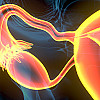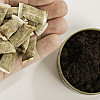Recent Blog Articles

Lead poisoning: What parents should know and do

How does waiting on prostate cancer treatment affect survival?

Does running cause arthritis?

Is alcohol and weight loss surgery a risky combination?

Preventing ovarian cancer: Should women consider removing fallopian tubes?

Healthier planet, healthier people

Is snuff really safer than smoking?

Will miscarriage care remain available?

Considering collagen drinks and supplements?

Does less TV time lower your risk for dementia?
Lacunar Stroke
What Is It?
Strokes can damage brain tissue in the outer part of the brain (the cortex) or deeper structures in the brain underneath the cortex. A stroke in a deep area of the brain (for example, a stroke in the thalamus, the basal ganglia or pons) is called a lacunar stroke. These deeper structures receive their blood flow through a unique set of arteries. Because of the characteristics of these arteries, lacunar strokes happen a little bit differently from other strokes.
A lacunar stroke occurs when one of the arteries that provide blood to the brain's deep structures is blocked. These arteries are small, and are uniquely vulnerable. Unlike most arteries, which gradually taper to a smaller size, the small arteries of a lacunar stroke branch directly off of a large, high-pressure, heavily muscled main artery. High blood pressure (hypertension) can lead to lacunar strokes because it causes a pounding pulse. Since the arteries don't gradually taper down in their size, high blood pressure can directly damage these arteries. High blood pressure also can cause atherosclerosis, a condition in which fatty deposits (plaques) build up along the walls of blood vessels. When atherosclerosis is present, a clot can form inside of one of these small arteries, blocking blood flow in the artery.
To continue reading this article, you must log in.
Subscribe to Harvard Health Online for immediate access to health news and information from Harvard Medical School.
- Research health conditions
- Check your symptoms
- Prepare for a doctor's visit or test
- Find the best treatments and procedures for you
- Explore options for better nutrition and exercise
I'd like to receive access to Harvard Health Online for only $4.99 a month.
Sign Me UpAlready a member? Login ».
Disclaimer:
As a service to our readers, Harvard Health Publishing provides access to our library of archived content. Please note the date of last review or update on all articles.
No content on this site, regardless of date, should ever be used as a substitute for direct medical advice from your doctor or other qualified clinician.
Free Healthbeat Signup
Get the latest in health news delivered to your inbox!
